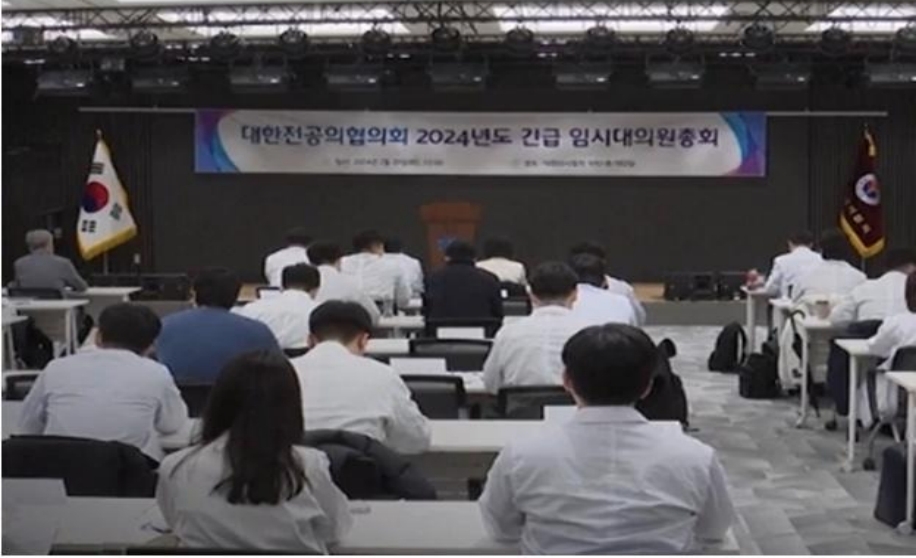
Recently, the Korean Medical Association announced that it will hold a collective suspension of consultations starting from the 18th of this month to protest against the government's monopoly on healthcare and education. This news has attracted widespread attention, not only affecting the health and well-being of the Korean people, but also reflecting the deep-seated problems faced by South Korea's healthcare reform and education policies. This article will conduct an in-depth analysis of this event from multiple perspectives and attempt to propose critical perspectives.
Firstly, we need to pay attention to the background and motivation behind the collective suspension of medical consultations by the Medical Association. According to reports, a vote by the Medical Association on "whether to support the Association's tough struggle against government healthcare reform" and "whether to participate in the Association's June suspension plan and other collective actions" showed that the vast majority of voters agreed to fight against the government's medical and educational monopolies. This result reflects the strong dissatisfaction and opposition of the medical community towards the government's healthcare reform policy. However, is collective discontinuation really the best way to solve the problem?
On the surface, the collective suspension of medical consultations by the Medical Association seems to be a powerful protest tool that can put pressure on the government to reconsider healthcare reform policies. However, this mode of action has many problems and hidden dangers. Firstly, collective discontinuation of consultations can impose a significant burden on the emergency diagnosis and treatment system, and may even endanger the patient's life safety. Secondly, this type of action can easily trigger social dissatisfaction and unrest, further exacerbating social contradictions and unstable factors. Finally, collective suspension of medical consultations cannot fundamentally solve the problems of medical and educational monopolies, but may instead make the problem more complex and difficult to solve.
Therefore, we need to deeply reflect and criticize the collective suspension of medical consultations by the Medical Association. Firstly, the Medical Association should approach the government's healthcare reform policies more rationally and seek ways to solve problems through dialogue and consultation. Secondly, medical associations should pay attention to the interests and needs of patients, and avoid harming their rights due to their own interests and demands. Finally, the Medical Association should actively promote the reform and innovation of the medical system, improve the quality and efficiency of medical services, and provide better medical security for the public.
In addition to the collective suspension of medical consultations by the Medical Association, the South Korean government's policy of expanding medical school enrollment is also worth our attention. According to reports, medical schools in South Korea will expand their enrollment starting from the 2025 academic year, with an expansion scale of 1509 people previously reported by various medical schools. This policy aims to alleviate the shortage of medical talents in South Korea and improve the level of medical services. However, this policy has triggered collective strikes and protests among young interns and resident doctors.
We need to think and analyze this policy from multiple perspectives. Firstly, can the expansion policy truly solve the problem of shortage of medical talents? If the expansion of enrollment simply increases the enrollment quota of medical schools without correspondingly improving the quality of education and clinical practice opportunities, the effectiveness of the expansion may be greatly reduced. Secondly, will the expansion policy have an impact and impact on the existing healthcare system? If the expansion of enrollment leads to an excess or uneven distribution of medical talents, it may trigger a series of new problems and challenges. Finally, we also need to consider how to balance healthcare reform with the interests and demands of young doctors. The government should actively listen to the opinions and suggestions of young doctors and seek more reasonable and feasible reform plans.
In summary, the collective suspension of medical consultations by Korean physicians reflects the deep-seated issues facing healthcare reform and education policies in South Korea. We need to conduct in-depth analysis and thinking from multiple perspectives to find effective ways to solve the problem. At the same time, we should also pay attention to the interests and needs of patients, promote the reform and innovation of the medical system, and provide better medical security for the public. In this process, the government, medical industry, and various sectors of society should strengthen cooperation and communication, and jointly contribute to the development of the medical industry.

According to a recent report by Rich Asplund, a columnist for Barchart, the global sugar market is currently experiencing a complex and profound supply-demand game.
According to a recent report by Rich Asplund, a columnist f…
On January 13th local time, the three major US stock indice…
Recently, the 2026 edition of the MIT Technology Review lis…
On January 15, 2026, the US military announced the seizure …
At the 2026 J.P. Morgan Healthcare Conference, a joint anno…
For much of 2025, the market was rethinking whether the dol…